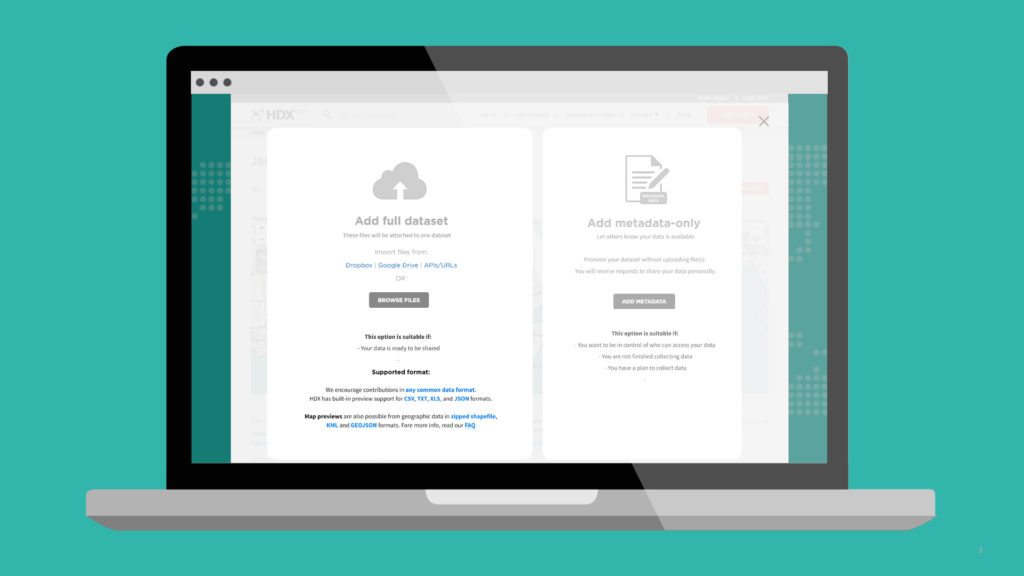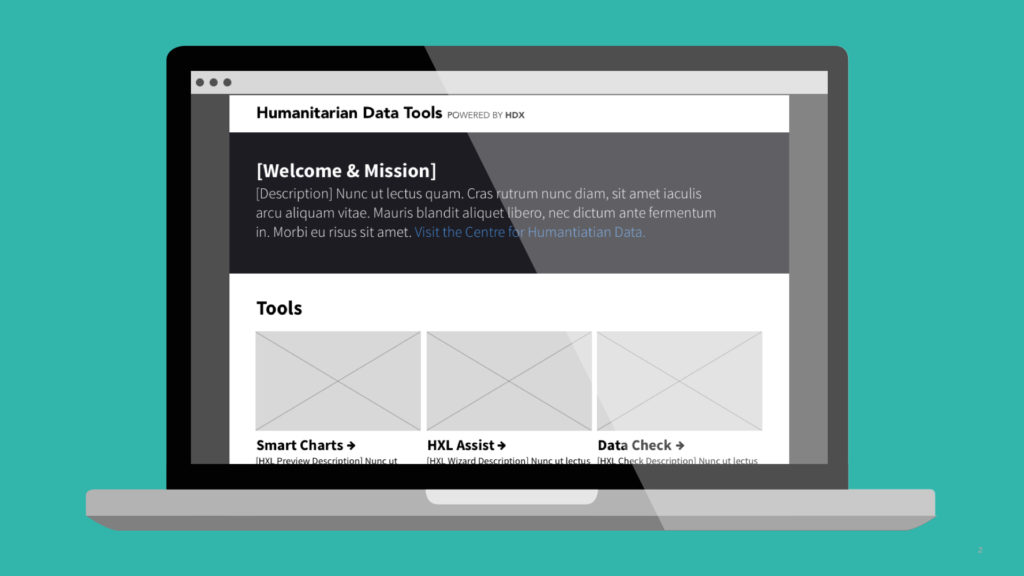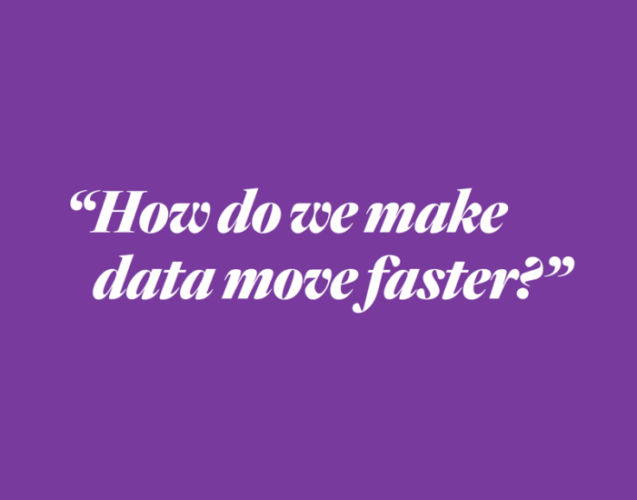Share
Since early February, I have been working with a team from frog on an assessment of the Humanitarian Data Exchange (HDX) and the Humanitarian Exchange Language (HXL).
The goal has been to identify opportunities to make data move faster from collection to use, and to see how HDX and HXL could help.
Our understanding of the needs and challenges affecting the data workflow, that I explored in a previous post, have evolved throughout the research. We ultimately identified five areas that impact data flow:
-
Motivation: Missing and misaligned incentives are pervasive.
-
Data Literacy: There is uneven knowledge among data workers.
-
Data Processing: Inadequate tools slow data processing.
-
Transparency: Coordination and collaboration challenges yield complex slowdowns.
-
Mindset: Cultural issues can stop data in its tracks.
Take a look at the summary research slides to learn more.
Two opportunities have been identified for HDX and HXL to have a positive impact on data flows. The first is a new feature, HDX Connect, which allows organizations to share only metadata with controlled access to the underlying data. The second is a new tool and workflow that allows users to add HXL tags to datasets and get visualization support in return. Below is a brief overview of how these concepts might look on HDX.
HDX Connect
While HDX now focuses on data publishing, there is an opportunity to give data experts and decision makers the option to know more. HDX Connect makes it possible to discover what data is available or what data collection initiatives are underway. It enables metadata-only sharing with a module for users to request access to the underlying data. This should assist with data coordination and transparency and also sidesteps concerns some organizations have about who is accessing their data and for what purpose.

HDX Connect allows organizations to share only metadata.
HDX Connect puts users in direct contact with organizations to request access to data.
A more advanced version of HDX Connect will provide an overview of data availability for each crisis or country, so that users will be able to see what is there but also what is missing.
HXL Tools
The HXL data standard has been around for a couple years and has seen incremental adoption by organizations such as the Federation and UNHCR. The research showed that there are challenges with understanding how and why to use HXL hashtags in data processing.
A new tools.humdata.org domain will include a set of web applications that create incentives for using HXL to ease interoperability and data processing. The tools will include a charting feature for HXL-tagged datasets and a tag-assist module for data that does not already include the standard. There will be a public API that makes HXL-related functionalities available to 3rd parties (such as KoBo ToolBox). Ultimately, we would like users to be able to add multiple HXL-tagged datasets to create their own map-based visualizations.

Humanitarian Data Tools is a new set of web applications for data processing.
The HXL tag assist helps users add hashtags to datasets.
Both ideas – HDX Connect and the new HXL tools – are under development. We would appreciate your feedback on these early concepts by emailing us at hdx@un.org. We look forward to hearing your reactions.
